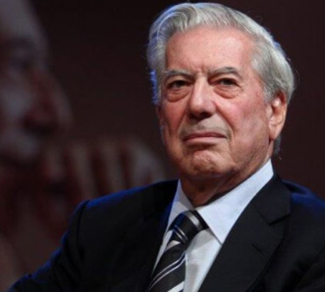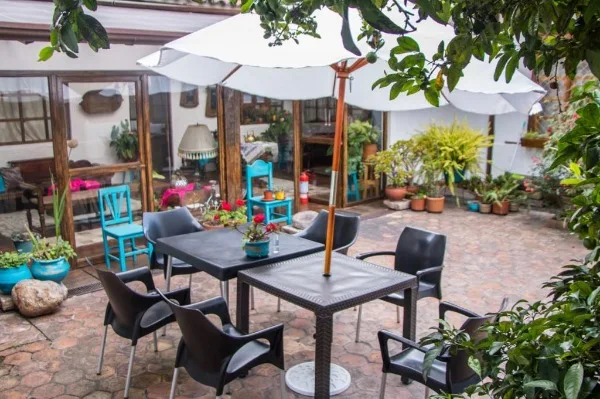Peru’s native son Mario Vargas Llosa argues for a culture of freedom and a rejection of tribalism
By Brian Stewart
The novelist Mario Vargas Llosa has long distinguished himself as one of Latin America’s shrewdest observers of human nature, as well as one of its scarce classical liberals. Owing to a desire “to have one foot in the street,” Vargas Llosa has never been content to remain confined to the world of invention. The prolific literary output that garnered him a Nobel Prize in Literature in 2010 has been supplemented by political writings in which he takes consistent aim at the notion that tyranny itself could be “benign” depending on whose ends it fulfills.
in Literature in 2010 has been supplemented by political writings in which he takes consistent aim at the notion that tyranny itself could be “benign” depending on whose ends it fulfills.
Vargas Llosa’s latest work, The Call of the Tribe (published in Spanish in 2018 and only now appearing in English), draws from the well of small-l liberal philosophers for a broad defense of the aesthetics and morals of liberalism. Its title refers to the distinction between the free citizen and the “deindividualized” member of the “mass” or “tribe,” whose sovereignty is subsumed within the collective. “The call of the tribe, the attraction to that form of existence in which individuals enslave themselves to a religion or to a doctrine or to a leader…and shy away from the arduous commitment to freedom and their sovereignty as rational beings, clearly touches chords deep within the human heart,” writes Vargas Llosa. From time immemorial, the author explains, this leveling impulse has created space for grave affronts to liberty that range from theocracy to the political religions of fascism and Communism.

Mario Vargas Llosa
The Call of the Tribe is an engaging and erudite memoir that pays tribute to seven major thinkers who shaped Vargas Llosa’s political odyssey. Inspired by To the Finland Station, Edmund Wilson’s classic study of the rise of socialism, Vargas Llosa wanted to pay a similar compliment to the liberal idea, or the idea of political and economic freedom. The result is a moving homage to liberalism, which he describes as “an attitude toward life and society based on tolerance and respect…and a firm defense of freedom as a supreme value.”
He writes of the influence of Adam Smith, Friedrich Hayek, Karl Popper, Isaiah Berlin, and lesser-known 20th-century figures — Raymond Aron, Jean-François Revel, and José Ortega Y Gasset. Vargas Llosa sheds light on Smith’s position as a moral philosopher before becoming the “Father of Economics,” on Hayek’s dire warnings against state intervention, on Popper’s assertions about the incongruity of socialism with individual liberty, and on Berlin’s recognition of inexorable trade-offs between political values.
These are fascinating choices for an author whose earliest political memories are of a coup d’état in his native Peru. Growing up under military rule imbued the young Vargas Llosa with “a hatred for dictators of any stripe” that propelled him, after a fashion, to the neo-Marxist quarters of the French left. Belonging to a generation weaned on esoteric political tracts from the Left Bank, he cheered Castro’s “romantic heroism” and the revolt he led against the Batista dictatorship in Cuba in 1959. The repressive authoritarianism of the new order in Havana, however, left him disenchanted by “the illusions and sophisms of socialism.”
Reality mugged Vargas Llosa in stages and drove him steadily rightward while he lived in metropolitan Europe. Living in the United Kingdom during the Thatcher era, he was magnetized by the Iron Lady’s “profoundly liberal” convictions about the relationship between the state and the individual. Fortified by the example of Ronald Reagan, he came to admire these revolutionary conservatives in the West who had no “inferiority complex” with regard to Communism and who exhibited a deep commitment to natural rights and human dignity. Without assenting to their entire political program — the social conservatism of the time wasn’t to his taste — Vargas Llosa was nonetheless transfixed by their contributions to “the culture of freedom.” In 1990, he demonstrated his political maturation by launching an (unsuccessful) bid for the presidency of Peru on a platform of economic reform that, without neglecting the rights of the deprived, would have delighted Hayek and the Austrian school.
At a time of social fragmentation in Western societies, his exploration of the work of Isaiah Berlin is especially welcome. Berlin posited a delineation between “negative” and “positive” conceptions of freedom: The former relates mainly to the rights of the individual vis-à-vis the state; the latter is more expansive, accommodating questions of “social justice” as well as civil liberties. When Vargas Llosa writes that these constitute “two profoundly divergent and irreconcilable attitudes toward human development,” he reminds us that “positive” freedom is liable to unleash intractable social conflict that can end in the deprivation of both freedom and bread.
But it’s the French intellectual Raymond Aron who ranks as the key contributing figure in this pantheon. Vargas Llosa started out with Marxism and Sartrean existentialism on his mind, and it was Aron who did as much as anyone to puncture these bubbles of complacent gauchiste opinion. The bête noire of the postwar French left, Aron called himself an “incorrigible liberal.” He is vividly presented here as an “eccentric thinker within the French tradition that adores extremes: He was liberal and moderate, a champion of that Saxon political virtue common sense, an amiable skeptic who…defended liberal democracy against dictatorships, tolerance against dogmas, capitalism against socialism, and pragmatism against utopias.”
That is not to say Vargas Llosa’s worldview is without blemish. His marked commitment to cosmopolitanism prejudices him against nationalism, which he considers the “culture of the uncultivated” and the “great enemy of democracy.” The possibility that national solidarity can also be the great enemy of dictatorship, as it more than obviously is today in Ukraine, he leaves unexamined. Vargas Llosa’s affection for world citizenship comes into view early, in his chapter about Adam Smith, who denounced “the mean principle of national prejudice.” But he neglects the rest of the sentence, in which Smith concedes that patriotism is “often founded upon the noble [principle] of the love of our own country.” This bias against national feeling helps explain why Vargas Llosa favors some outlandish policies, such as unrestricted illegal immigration into Spain, but it’s a rare departure from his elevated common sense.
If Vargas Llosa’s right-wing credentials are hardly unimpeachable, his set of intellectual tribunes still offers much to contrast with a pseudo-conservatism that has begun to hang democracy — and liberal values — out to dry. A line from the introduction warrants particular consideration. “Liberalism is a doctrine that does not have answers to everything,” Vargas Llosa admits at the outset. The civic and intellectual modesty of this mentality sets it apart from the various anti- and post-liberal ideologies in fashion today — ideologies that are characterized by a futile search for definitive and total answers to perennial human problems. Vargas Llosa’s latest work is an admirable expression of a worldview that resolutely abstains from the dogmas of any party or clique.
___________________
Credit: Commentary





















